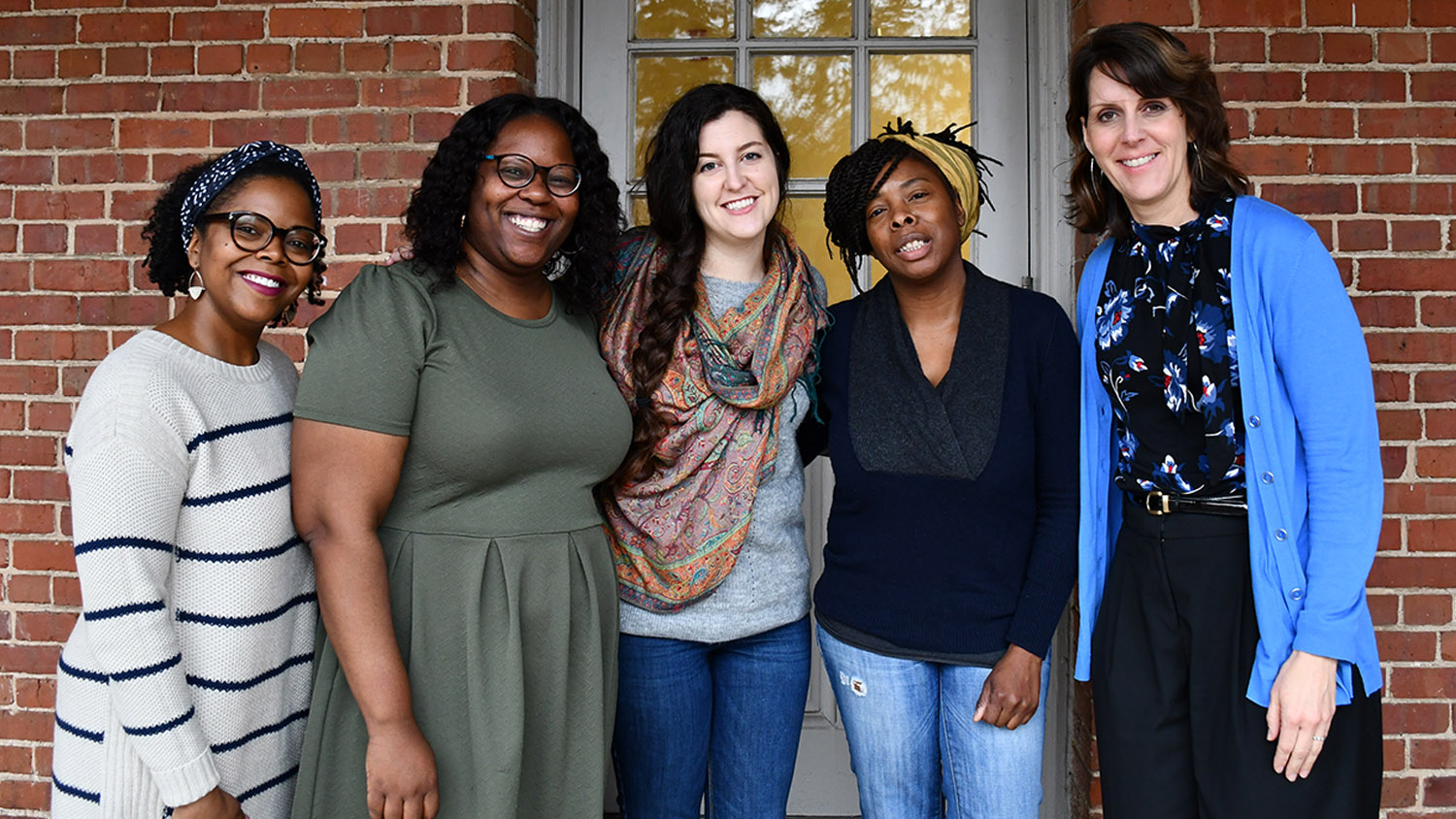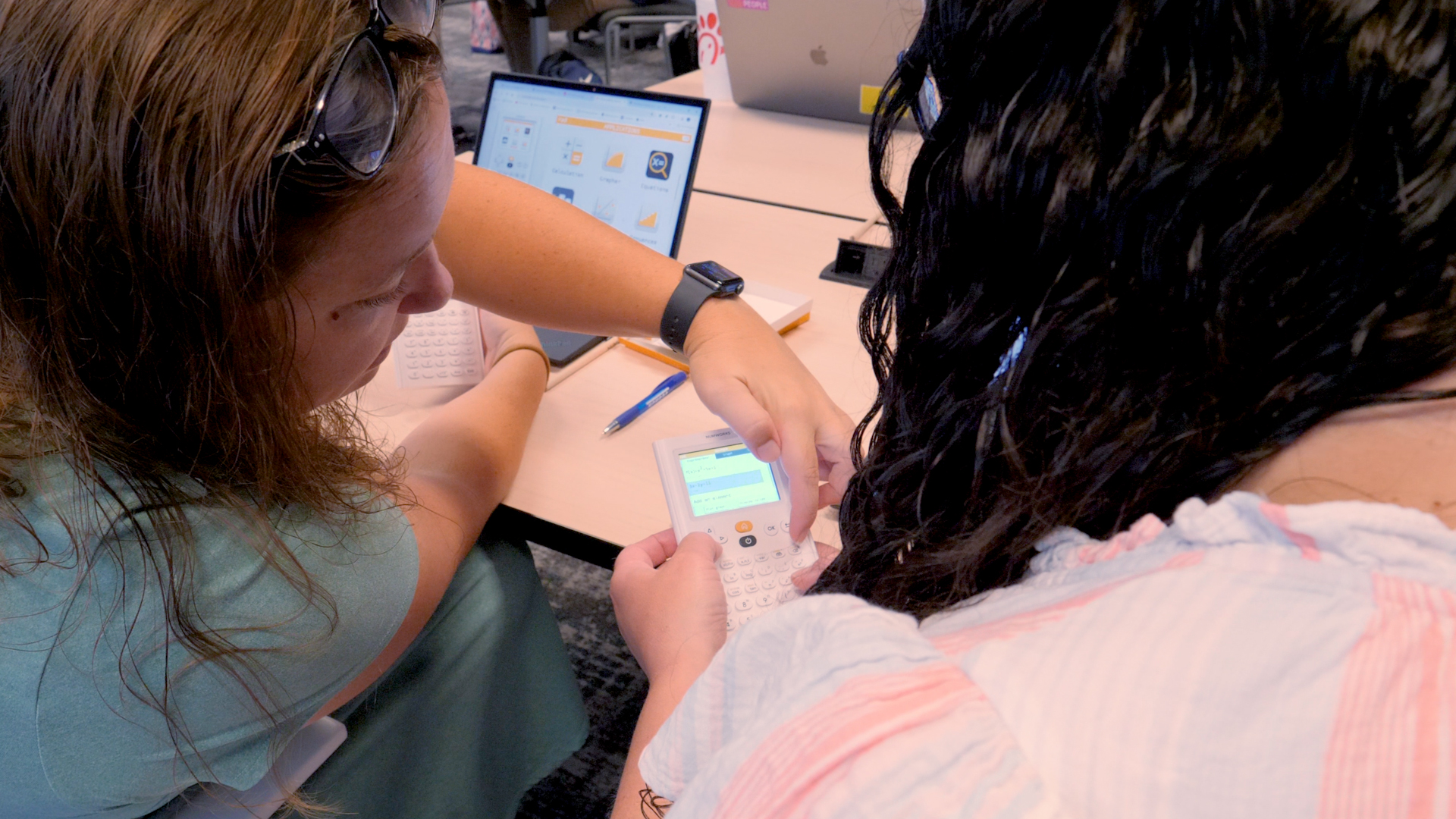Associate Professor Angela Wiseman Co-Leads Program to Help Future Educators, Social Workers Address Childhood Trauma Through Children’s Literature

One in 28 children in the U.S. has a parent who is incarcerated and many others are separated from their parents as a result of issues like homelessness and drug addiction. Despite this, many teachers say they are underprepared to address these issues in the classroom.
NC State College of Education Associate Professor Angela Wiseman, Ph.D., has been helping to prepare pre-service teachers and social workers to be better equipped to help K-12 students who have experienced trauma through a six-week collaborative program that recently wrapped up.
Wiseman partnered with Qiana Cryer-Coupet, Ph.D., an assistant professor of social work in the College of Humanities and Social Sciences, to teach the course after realizing they had been conducting overlapping research at the same drug rehabilitation facility. The pair recruited students from both colleges, giving graduate and undergraduate students an opportunity to discuss and collaborate on issues related to childhood trauma with picture books serving as a facilitator for the conversation.
“When we were thinking about children affected by trauma, Dr. Cryer-Coupet and I realized that we really benefited from working together, so it might be beneficial to pair our students together,” Wiseman said. “Research shows that both teachers and social workers don’t feel equipped to deal with the trauma that children face and that they also don’t know about the collaboration that could exist.”
Over the course of the six-week program, the pre-service educators and social workers discussed several issues that impact young students including parental incarceration, intergenerational transmission and screening for adverse childhood experiences (ACE).
Courtney Weathers ‘21, an elementary education major, said she enrolled in the program because she wanted to be better able to identify when classroom behavioral problems were rooted in traumatic problems at home and be prepared to approach the issue from a place of understanding.
One of the most memorable experiences from the course, she said, was hearing from Melissa Radcliffe, a guest speaker from Our Children’s Place of Coastal Horizons Center, an organization focused on educating professionals about the impacts of parental incarceration.
Guest speakers like Radcliffe help students preparing to be educators and social workers to understand the resources that are available to them to assist children, as well as to help them engage in self-care when dealing with difficult situations in the classroom, Weathers said.
“My participation in this course has better prepared me to address issues of childhood trauma in my future classroom because I have been provided so many culturally relevant resources that are suitable for young children,” she said. “I have a long list of literature for both my classroom library and for my own learning, and I will be receiving a Sesame Street kit of resources [shown by Radcliffe during her visit] that teaches about and supports children who have an incarcerated parent.”
Weekly discussions also helped pre-service educators understand appropriate ways to respond when a student shares an adverse experience in the classroom.
“We want to encourage our pre-service teachers to welcome all different family situations and support children in the classroom,” Wiseman said. “So knowing how to respond in ways that are sensitive to trauma that children may be experiencing and starting to practice and think about how to respond before it happens is very important.”
The weekly sessions usually began by reading a picture book. Students in the program would break off into discussion groups to talk about the book’s content and how the literature could help them address adverse childhood experiences.
The idea of using children’s books to facilitate conversations about difficult topics stems from Wiseman’s and Cryer-Coupet’s ongoing Trauma Informed Parenting Support for Recovery (TIPS 4 Recovery) work with parents in a drug rehabilitation facility.
Since 2015, Wiseman has been using picture books with mothers and fathers in the facility to discuss parenting and ways to communicate with their children. Two years ago, she began collaborating with Cryer-Coupet to bring an integrated approach of education and social work to the family literacy program. Together, they facilitate ways parents can discuss books with their kids. A key component of their approach is to encourage the parents to discuss their own reactions to the stories.
“The fathers and mothers are always surprised at how those picture books encourage conversation and discussion. Oftentimes these conversations open us up to being able to meet them where they are and talk about their identities as parents,” Wiseman said. “The picture books are the vehicles for the conversations and then we bring in the background information from our disciplines.”
Following the success of that program, Wiseman and Cryer-Coupet brought the format into the classroom for pre-service teachers and social workers this spring. The course was funded by faculty research and professional development and Office of Outreach and Engagement grants.
Students who joined in the six-week program received a certificate of completion. A survey administered on the final day will help Wiseman and Cryer-Coupet understand ways in which the program impacted the students’ knowledge and attitudes.
With more than 30 students enrolling in a program that was initially only designed for about 15, Wiseman said she hopes to expand the program into a course that could be offered regularly for pre-service educators and social workers. In addition, she hopes to create a website featuring related professional development resources to help connect more educators with materials to help children.
- Categories:


